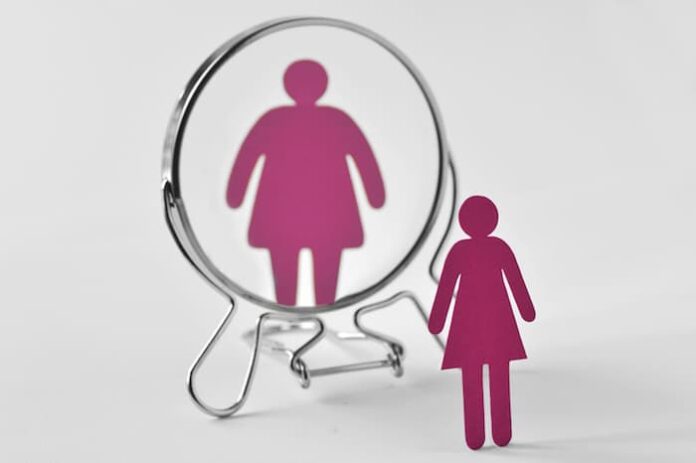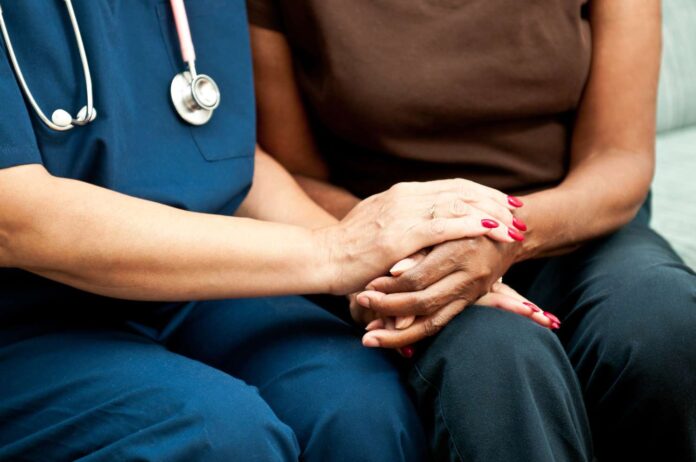Anorexia nervosa (AN) is an eating disorder (ED) characterized by an excessive fear of gaining weight or becoming overweight, as well as developing a distorted body image. Eating disorders are associated with high rates of mental and medical comorbidity, with depression being the most common factor.
Approximately 0% to 13% of individuals with primary ED are estimated to have psychotic episodes. People with anorexia place a strong priority on regulating their weight and body form, often to the point where it interferes severely with their life. In order to prevent weight gain or to continue dropping weight, anorexics typically strictly restrict their food intake. They may restrict their caloric intake by vomiting after meals or by using an excess amount of laxatives, diet aids, diuretics, or enemas.
They may also attempt to decrease weight by engaging in excessive exercise. Despite weight loss, the individual continues to fear regaining weight. Psychotic difficulties include symptoms such as visual and auditory hallucinations, delusions, and catatonia, and are most typically labeled schizophrenia. In this article, we will explore more about AN and determine whether it is a psychotic disorder.

The Common Symptoms Of AN
Eating disorders generally coexist with various mental conditions, such as mood and anxiety disorders, obsessive-compulsive disorder, and alcohol and drug addiction issues. Sevel research has been conducted that indicates that genes and heredity play a role in the onset of these diseases. This is why some people are at a higher risk of developing these diseases than others.
The physical symptoms and indicators of anorexia are related to malnutrition. Anorexia is accompanied by mental and behavioral disorders with an exaggerated sense of body weight and an intense fear of gaining weight or becoming obese. The adverse consequences of malnutrition or purging practices can include heart and gastrointestinal issues in addition to other potentially lethal illnesses. Psychological, behavioral, dietary, and other medical issues should be addressed in treatment.
Signs and symptoms may be difficult to recognize because the definition of low body weight varies from person to person, and some persons may not appear particularly thin. Additionally, individuals with anorexia generally try to conceal their eating habits, or physical concerns.

Physical Symptoms
Physical signs of anorexia can include:
- Extreme weight loss or failure to gain weight
- Abnormal blood counts
- Fatigue
- Insomnia
- Vertigo or fainting
- Fingertip discolouration with a bluish hue
- Irregular menstruation
- Constipation and stomach ache
- Flaccid or yellowish skin
- Insensitivity to cold
- Abnormal heart rhythms
- Reduced blood pressure
- Dehydration
- Oedema of the arms or legs
- Teeth erosion and calluses on the knuckles as a result of induced vomiting
Bulimia and Anorexia are quite similar to each other in terms of symptoms. However, there is one certain way to tell them apart. Persons with anorexia generally battle with an abnormally low body weight, whereas those with bulimia are generally average or overweight.

Behavioral And Emotional Symptoms
Anorexia’s behavioral signs may include attempts to shed weight by:
- Dieting or fasting that severely restricts food consumption
- Exercising too much
- Binging and self-induced vomiting to rid oneself of food, which may involve the use of laxatives, enemas, or herbal medicines.
Examples of emotional and behavioral symptoms include:
- Obsession with food, which may involve preparing extravagant meals for others but not consuming them.
- Frequent skipping of meals or refusal to consume
- Denial of hunger or providing justifications for not eating
- Consuming a limited number of “safe” foods, typically ones low in fat and calories.
- Adopting strict meals or eating habits, such as spitting out food after chewing it.
- Not desiring to eat food in public
- Falsifying how much food has been consumed
- Fear of gaining weight that may entail repetitive weighing or measurement of the body
- Frequent examination of one’s reflection for perceived imperfections
- Complaining about being overweight or having fat regions of the body
- Wearing multiple layers of clothes
- Lack of emotion
- Social isolation
- Irritability
- Insomnia
- Reduced sexual interest

When To See A Physician?
Unfortunately, many individuals with anorexia initially refuse treatment. Their drive to remain skinny outweighs their health concerns. If you are concerned about a loved one, encourage him or her to consult a physician for eating disorder treatment.
Get treatment at the earliest if you are suffering any of the above mentioned issues or if you suspect you may have an eating disorder. If you’re hiding your anorexia from loved ones, find someone you can confide in about your struggles.
Significantly, starvation can contribute to psychosis in multiple ways. Both nutritional deficiencies, such as niacin, thiamine, and vitamin B12, and other adverse consequences of malnutrition, such as sleep deprivation and metabolic abnormalities, are recognized as medical causes of psychosis.

Prevention
There is no foolproof method for preventing anorexia nervosa. Primary care physicians (pediatricians, family physicians, and internists) may be able to spot early signs of anorexia and avoid the onset of the condition. During routine medical appointments, they may inquire about eating habits and satisfaction with appearance, for instance.
Consider having a conversation with a family member or close friend about these issues if you observe low self-esteem, extreme dieting, and unhappiness with looks. Although you may not be able to avoid the development of an eating issue, you may discuss healthy behaviors and treatment alternatives.
Final Word
Anorexia nervosa (AN) is a psychiatric condition characterized by reducing the food intake. The individual worries about weight gain or changes in how their body looks. The disease affects around 1.4% of women and 0.2% of males, with a bimodal age of onset that peaks in late adolescence and early adulthood.
People suffering from AN are quite thin and they try to conceal their body with many layerings of clothes. Also, they often lie about the food they have consumed and try not to eat when in the company of people. They may also not agree to see the doctor and may not confide about their problems to other people. If you notice any of the above mentioned symptoms, ensure to visit a psychiatrist at the earliest and get the condition treated.





![Calgary’s Hottest Neighborhoods for Luxury Homebuyers [2024]](https://thewashingtonote.com/wp-content/uploads/2024/04/Calgary-324x160.png)



